Canada’s Albatross
Mark Carney’s Proposed Revival of Trudeau's C-63: A Dead Thing Dragged Ashore to Shackle the Living
They say it’s “just the price of a coffee.” Spare me. You already have too much caffeine in your bloodstream. What you don’t have is enough fearless prose that refuses to grovel before the cult of feelings. For $6 a month, less than USD $4, you can remedy that.
Mark Carney’s resurrection of Trudeau’s Bill C-63 could have been christened honestly for what it is: the Poopy Face Speech Act. That’s the level of legal precision we’re working with — language outlawed if it makes someone feel “kinda sad-mad.”
And who better to brand it all than Carney himself: central banker turned unelected prime-minister-in-waiting, turned prime minister, the new female boomer heart-throb with raised elbows.
His rallies are already the stuff of tragicomedy: boomers tottering in on their walkers, eyes shining with a man-crush or girl-crush they haven’t felt since Pierre crooned on the hustings.
They attempt to flex their shoulders for Carney — the first time in three months they’ve moved anything above the elbow — only to pull something instantly.
The effect is less “political awakening” than “chicken dance gone wrong,” an embarrassing flashback to a 1980s disco routine so appalling that, if any parent dared try it today in a living room full of teenagers and their friends, the homicide rate would spike.
Yet what Carney peddles is not a bold new initiative, but the revival of a monstrosity already rejected — Trudeau’s C-63, a bill so atrocious it died on the floor of Parliament when he dissolved the House. It should have stayed there, decently interred.
Instead, Carney insists on playing saviour, attempting his own parody of resurrection. But this is not Lazarus from the tomb; this is more like digging up the family guinea pig you buried in the flower bed last July after it baked in the heat — and parading it about as though it were a fresh new pet. It is ugly stuff.
Carney sells it with the sanctimony of a banker-Jesus, breathing life into carrion that should have stayed dead.
Together with Mélanie Joly — the cabinet minister who looks as though she won her position in a radio-show giveaway, whose chief qualification for the job is an inexhaustible confidence in her own résumé-free expertise — Carney has managed the ultimate Canadian innovation: authoritarianism with a giggle, tyranny in toddler-speak.
Carney brings the spreadsheets, Joly brings the crayons, and the result is a bill so ludicrous it makes Orwell look like an optimist.
Is freedom of speech in Canada waning? Is Carney’s proposed new C-63 the cheeriest forewarning yet that creeping authoritarianism doesn’t arrive jackboot-first but oozes in dressed up as “safety”?
And should we comfort ourselves with the thought that the most polished technocrat in Christendom can’t possibly cause serious harm? History suggests otherwise. Buffoons are dangerous because we don’t take them seriously; technocrats are worse because we do.
Bill C-63 is being sold as a measured step to regulate “harmful” online speech. After all, it’s easy to regulate speech without impinging on free speech and ruining people’s lives, isn’t it?
Just ask the Canadians hauled before human rights tribunals because somebody “viewed their comment as something they should have known would be unwanted.” That is the standard.
After nine years of voter fatigue and a government lurching down a crumbling Trans-Canada Highway — swerving from scandal to scandal, pothole to pothole, economic decline to climate sermon — the somnambulant Canadian electorate was brought into something resembling life. And even then, when it seemed we might finally rouse ourselves, we proved that hope misplaced.
For when the orange man to the south started calling Trudeau “Governor,” joking that Canada was the 51st state, and generally bypassing his own prefrontal cortex — that part of the brain entrusted with impulse control — we, in our infinite wisdom, managed to double down on Trudeau.
Having grown weary of the dauphin, we elected his economic advisor. Why? Because he wore a suit. Because he once worked in England as a banker. Never mind that the Brits loathed him; that would have required research.
This is Canada. Alas, we aren’t that bright.
So, a rich kid with no political experience, the ghost of Trudeau’s failures still clinging to his cuffs, was somehow sold as the upgrade. The whole business has the comic inevitability of Coleridge’s Rime of the Ancient Mariner, except in our case, the albatross is not hung around the guilty man’s neck but elected to lead the crew.
But perhaps our problems are not just about one bill or one government. Perhaps our leadership deficiencies and economic failures are symptoms of a deeper cultural malaise.
Freedom of Speech, Freedom to Offend
That malaise has left us bedridden and weak, scarcely appreciating free speech, and entirely unwilling to defend its sterner cousin: the freedom to offend.
Without the latter, you cannot truly have the former. Of course, offence for its own sake is no virtue; there’s no nobility in being a deliberate jackass. But if the bar for permissible speech does not include the possibility of offending, then we are no longer free at all.
Canadians, with our reflexive “sorry” culture, think perpetual niceness is a virtue.
In fact, it has become our curse. Our “bump us on the sidewalk and we’ll apologise” reflex has become a national pathology. It wasn’t always so. There was a time when serious discussions were had, when courts didn’t require a Messiah complex to work there, when human rights tribunals didn’t act like inquisitions in drag.
Today’s leaders actually seem to believe that the blaring Bluetooth speakers of their talking points can drown out reality itself — that with enough amplified drivel, they can legislate not just our words but our very emotions, our thoughts, our instincts.
They strut with the confidence of men who mistake volume for virtue, convinced that subjectivity, cranked to eleven and sprayed across the airwaves, can substitute for reason or law. It is the triumph of noise over sense, the illusion that feelings dressed up as policy have the solidity of principle.
Bark Collars for Humans
I am familiar with this from the classroom. My students are shocked that anyone might disagree with them on a serious issue. They’ve been trained, not educated. Our universities and high schools have become soapboxes for propaganda delivery, subsidised by the taxpayer.
Professors rant and students regurgitate, handing in essays that are essentially plagiarism by consent: the price of integrity traded for an “A.” It is no wonder so many emerge believing there is only one correct perspective.
When contradicted, their first instinct is not to counter the argument but to ask: how was that person allowed to speak at all?
Do many Canadians now think the Chinese are onto something with their social credit system? Even if most haven’t heard of it, would they instinctively think it’s just prudent governance — keeping the trains running on time? After all, if you behave, nothing happens to you, right?
The deeper tragedy is that most people don’t even realise how rare free speech is.
Only 8.4% of the world lives in a full democracy, and that number is shrinking. In recorded history, true democracies are a blip in the long hum of time, and the percentage of people who have lived under genuine free expression is vanishingly small. Yet we act as if democracy and speech rights are bricks in a maintenance-free home.
We ignore the rot and squalor until the roof collapses.
Like my mother-in-law, who thinks nothing of leaving meat dishes on the stove for fifteen hours, draping them with a tea towel as if linen were the Patriot missile system against bacteria (or Masha the cat) — so far, no one has died, and perhaps our immune systems are made of sterner stuff because of it.
But the practice is dangerous and indefensible. So too with this perpetual tinkering with online speech — every one of these bills dressed up in sugar-coating as “for the children.”
Whenever you hear that phrase — “but what about the children?” — do not be soothed. Do not nod. Notice instead that little reflux in your throat, that acrid tang of vomit at the back of the tongue. That’s your body warning you: run. They are about to take your freedom.
The fetish for prosecuting thought and speech, except in the most direct cases of incitement to violence, is not the mark of a civilised society. It will not ennoble us, it will not protect us, it will not improve us. It will only hurt people — some of them gravely — while leaving the real villains untouched, and giving a priestly new power to our bureaucrats so they might be able to police offence as though it were blasphemy.
If it hurts only one in a thousand, the 999 will shrug and say “better you than me” before returning to TikTok. Meanwhile, government and corporate “elites” — who confuse their mediocrity for greatness — will congratulate themselves.
Carney is the archetype here: a man who believes speech can be managed like bond yields, and that freedom of expression is just another line item to “balance” in the national account.
This is what passes for our elite: arrogant mediocrities elevated through accident, ambition, or the right family dinner invitations. They climb high but never read the memo explaining why. They are the living embodiment of chaos theory: proof that our fates are less in our control than we’d like.
But culture, not just leadership, is to blame.
When our leaders are idiots, it is because our culture has grown idiotic. We invited them. Today, censorship is the weird new kid who shows up at the party uninvited. He doesn’t come in the front door; he hovers by the fence in the backyard, sipping some ghastly alcopop, dressed badly, radiating awkwardness. Everyone knows he doesn’t belong, but instead of telling him to bugger off, we all politely pretend he’s part of the crowd.
Meanwhile, free speech — once the first guest picked for the team, the life of the gathering — is slouched in the corner, ignored, like the old friend who actually knows how to tell a joke but isn’t trendy anymore.
The DJ keeps playing soft-code ballads, and the crowd nods along, congratulating themselves on how tolerant and progressive they are, while the only guest worth talking to stares at his drink, wondering when he became invisible.
We comfort ourselves by imagining that free speech could only be lost in cloak-and-dagger conspiracies. No: the real danger is cultural apathy. Bill C-63 is not the only pathway to authoritarianism.
The heavy lifting will be done by stupidity, cowardice, ignorance, and false virtue.
I’ve experienced this myself. People tell me, “Gotta watch what you say these days.” As though silence were a virtue. It isn’t. Silence is cowardice with better PR.
We’ve turned self-censorship into a national virtue, confusing cowardice for morality. It’s like believing that selfishness and fear can be boiled down to a nourishing soup. They can’t. They make poison.
This new Carney-branded variant of Trudeau’s C-63 is simply a matter of turning up the heat under the frog pot — one more degree of legislative absurdity in a country too drowsy to notice the bubbles forming. And yes, the image above is almost too fanciful: a frog actually reading a newspaper.
As if anyone in this country still reads one.
Most Canadians haven’t the faintest idea what’s in this proposed bill, nor the faintest interest. If a newspaper editorial or a Substack post falls in the forest of our national apathy, and no one reads it, was it ever written?
Or was it just another sermon delivered to the trees, while the frogs sit happily poaching themselves, none the wiser?
Governments never admit: “We’re taking your freedom because we like power.” Instead, they tell you it’s “for the children.” It’s always for the children. Oppose it, and you’ll be accused of siding with racists or pedophiles—infantile arguments for an infantilised public.
The Scots at least made their sanctimony entertaining when they convicted a man of a hate crime for training his pug to do a Nazi salute. Tasteless? Sure. Funny? Yes. Criminal?
Only if you believe that humour is now a prosecutable offence, I’d sooner arrest the comic for those monstrous ear rings. But freedom should reign.
Conclusion: The Freedom to Offend
This is where Carney’s version of C-63 takes us: social media “safety,” infantilization, and algorithmic censorship. Digital platforms have already shrunk our attention spans to the size of gnats.
Expecting people raised on TikTok to read a serious essay on liberty is like asking a mayfly to sit through War and Peace. And so, marketing replaces reason. Feelings replace facts. Lived experience replaces evidence.
This matters because persuasion in a democracy is supposed to rely on reasoned debate. Instead, we now weaponise “sensitivity” as a virtue — a way of killing argument under the guise of kindness. We merge feelings with protected categories under human rights law, making them indistinguishable. The virtue of listening becomes a weapon of enforced silence. Disagreement is rebranded as hate.
Thus, we congratulate ourselves for evolving beyond free speech into the enlightened era of protected feelings. But freedom of speech without the freedom to offend is like alcohol-free beer: a fraud.
When next you hear fashionable nonsense spoken with undeserved authority, the most patriotic thing you can do is to raise your hand and say: No, I disagree.
If they’re offended, so what? Freedom requires the freedom to offend. Without it, Canada will remain a polite little tyranny, where everyone whispers agreement until the delicate bird of freedom lies dead at our feet.
And then, perhaps, God help us — He’ll be the only one left to offend.
If you found value in this article and wish to support my ongoing work, please consider leaving a tip. Your support helps me continue producing uncensored content on critical issues.



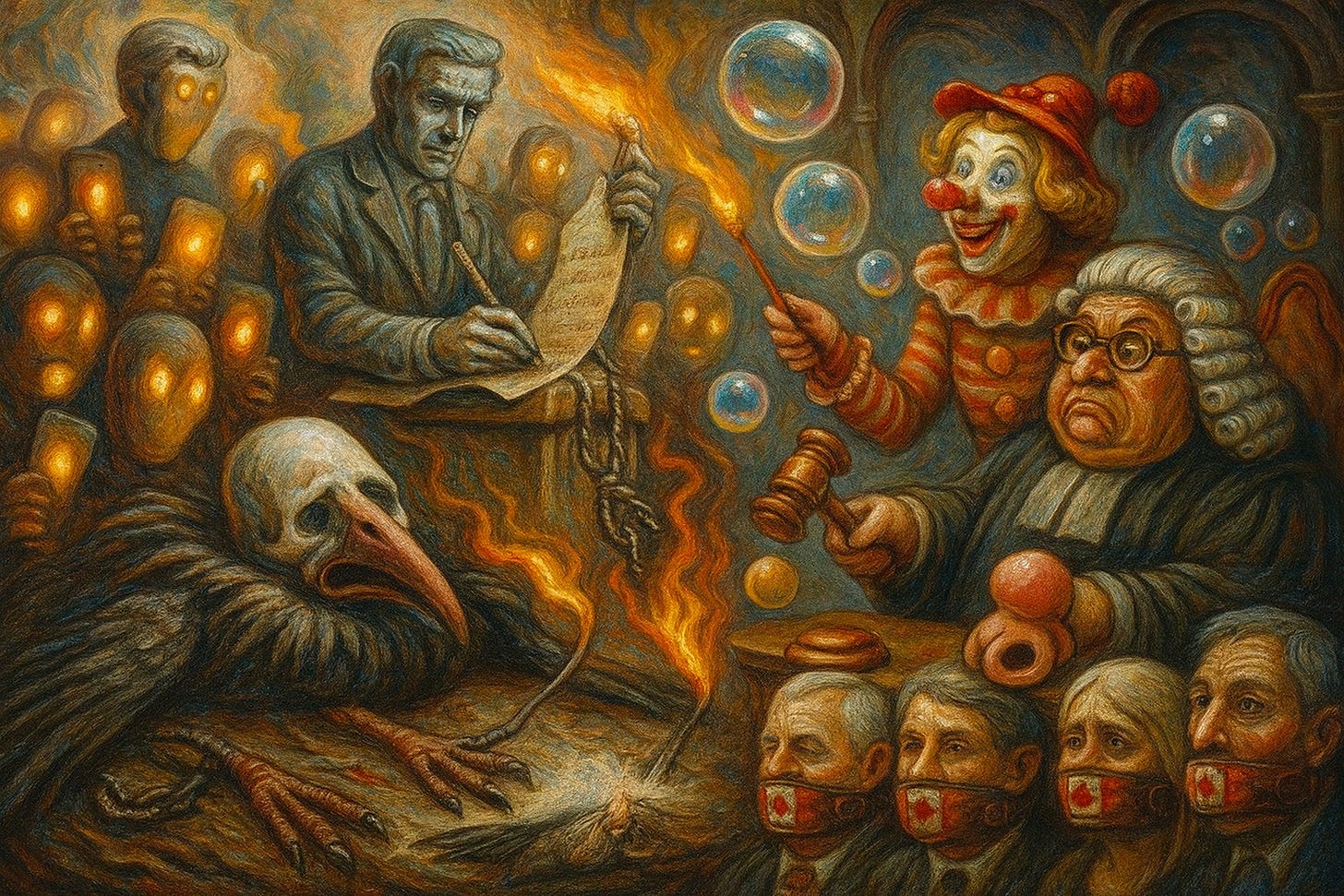

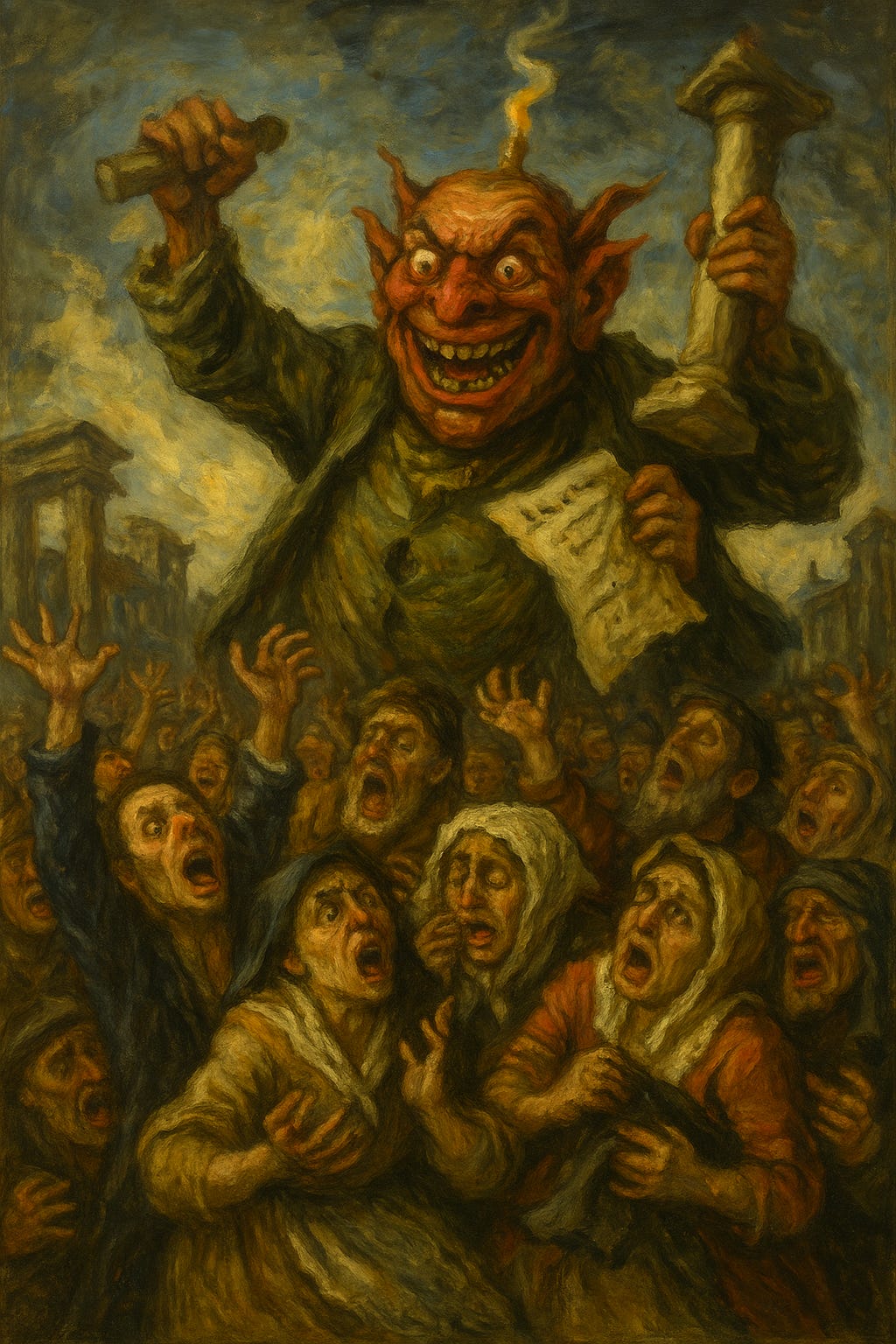
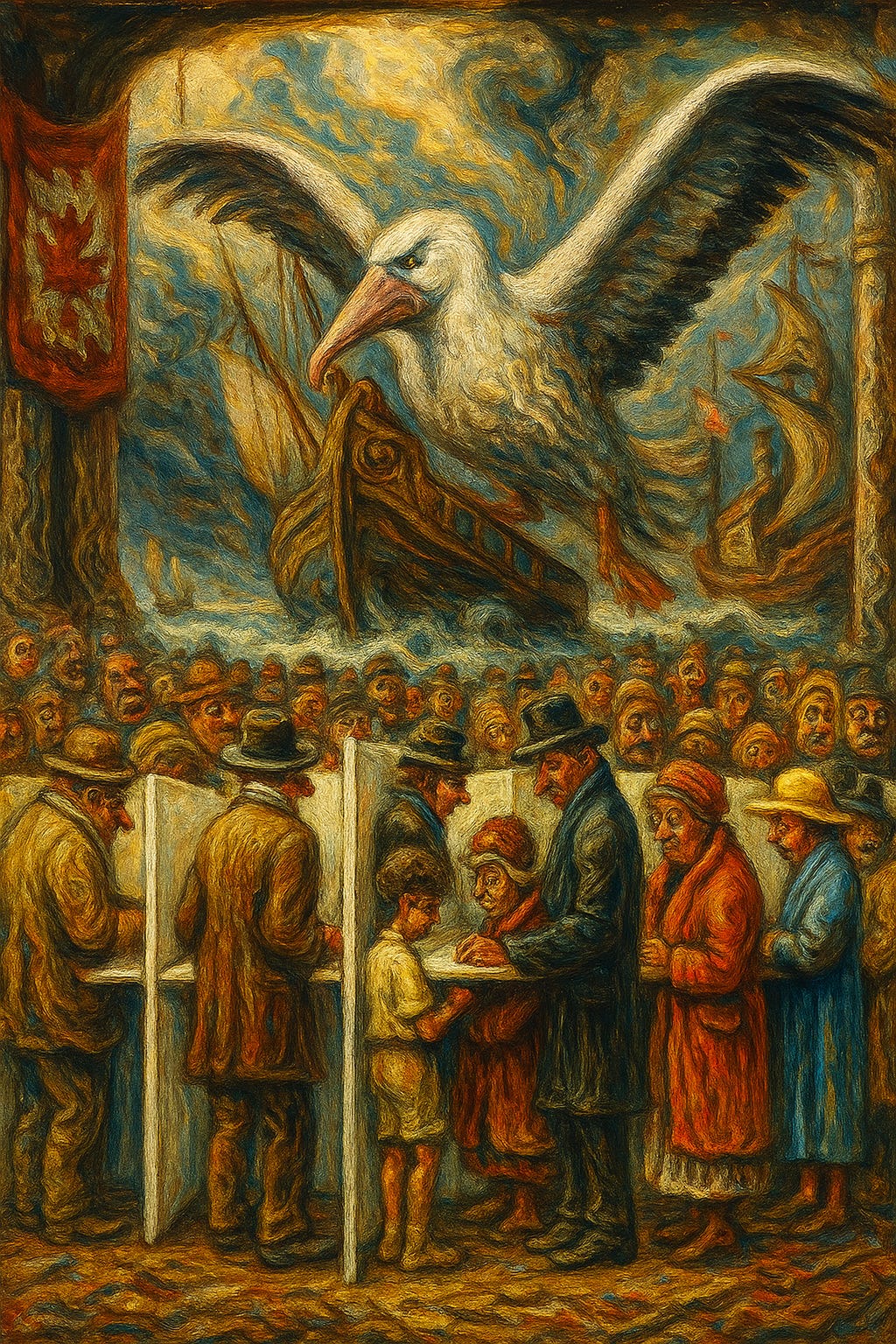
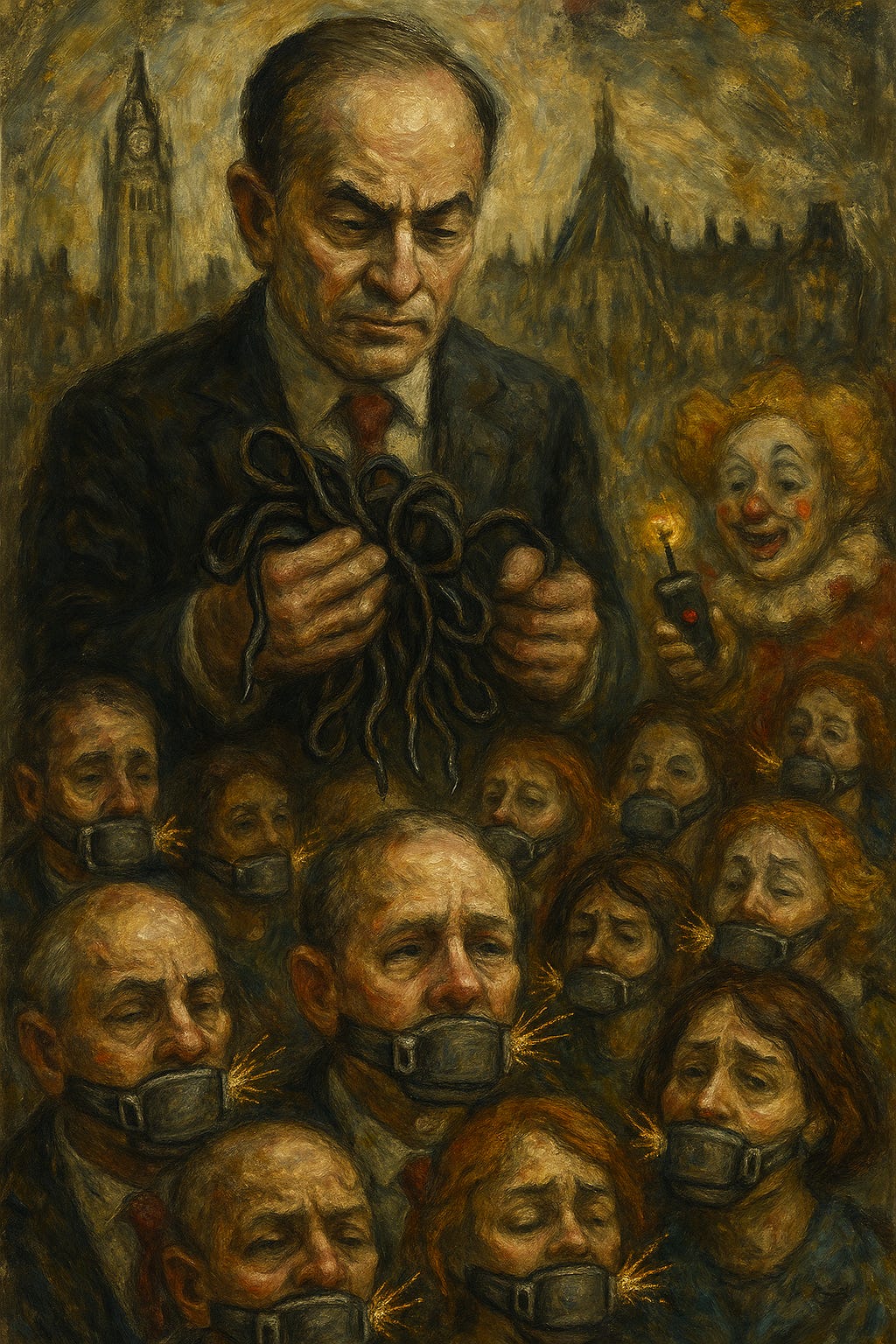
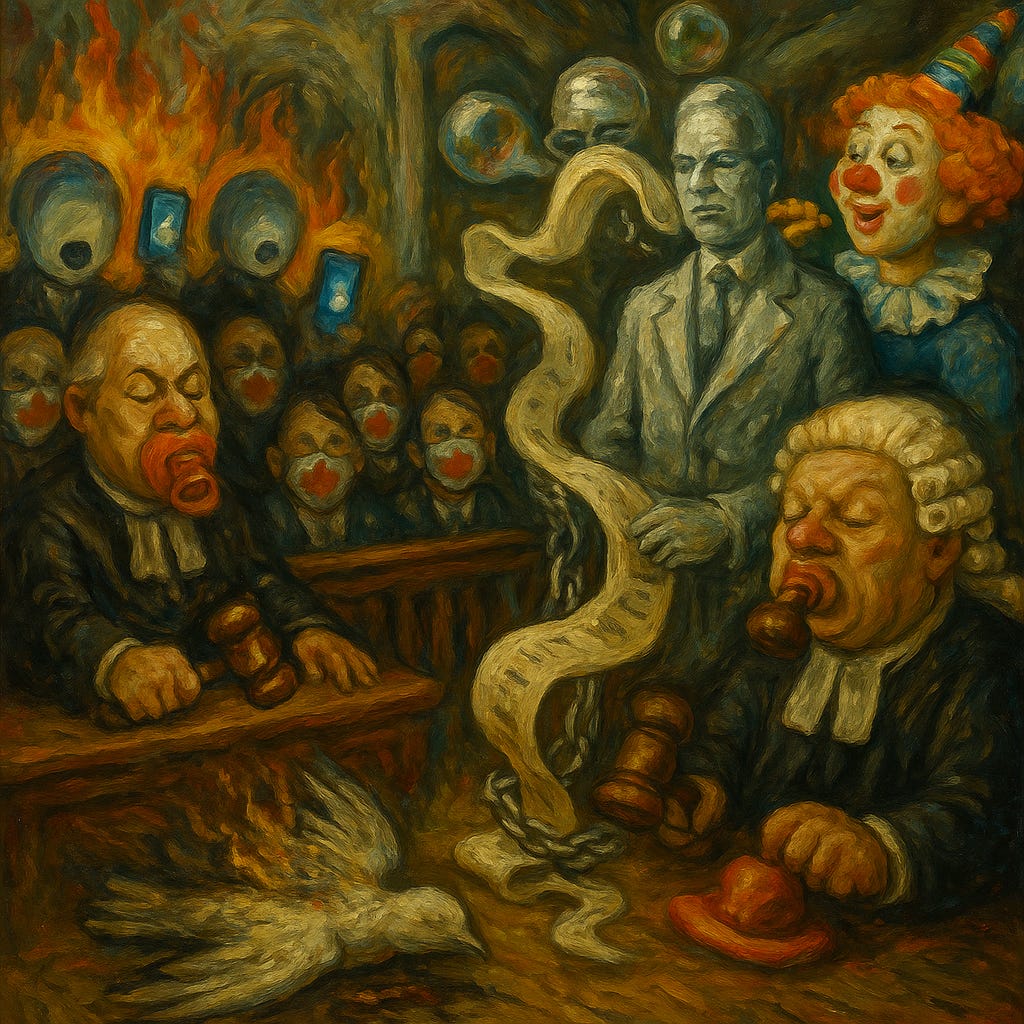
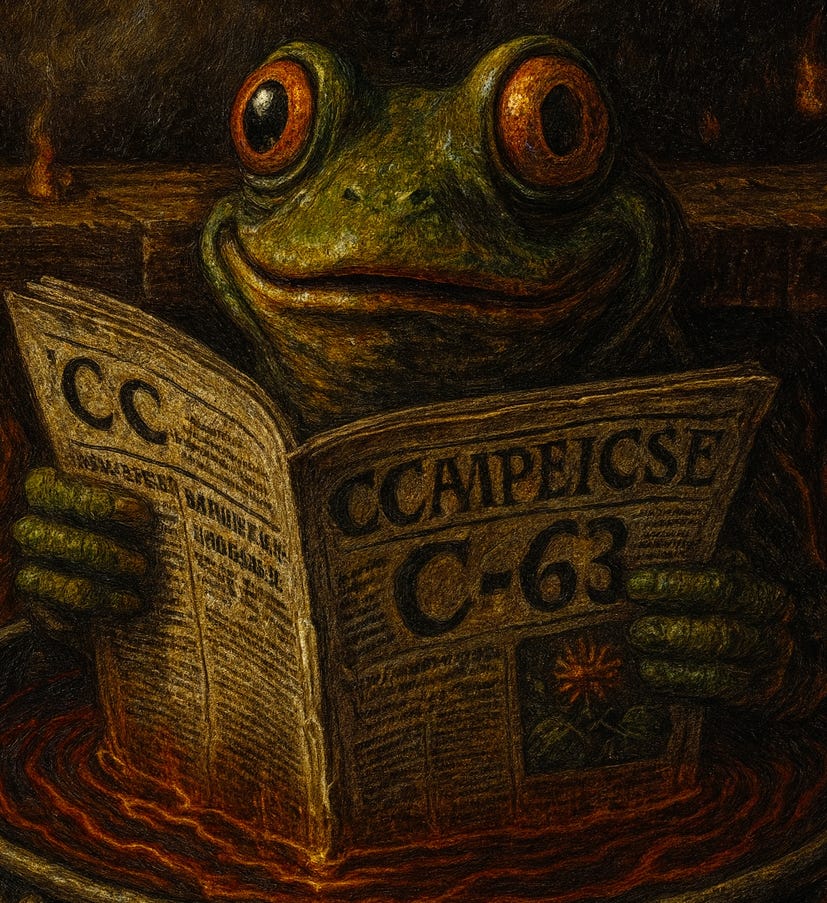
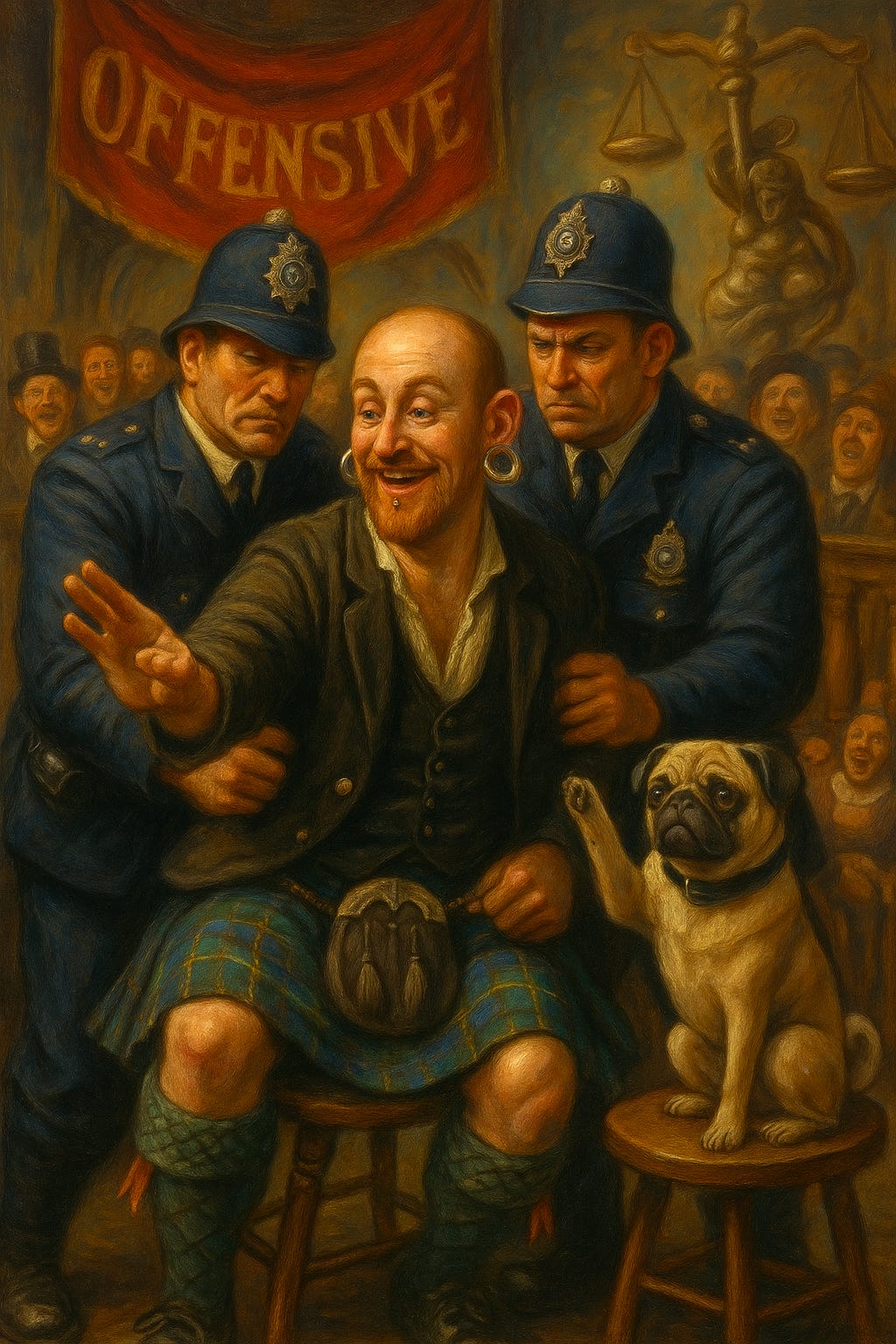
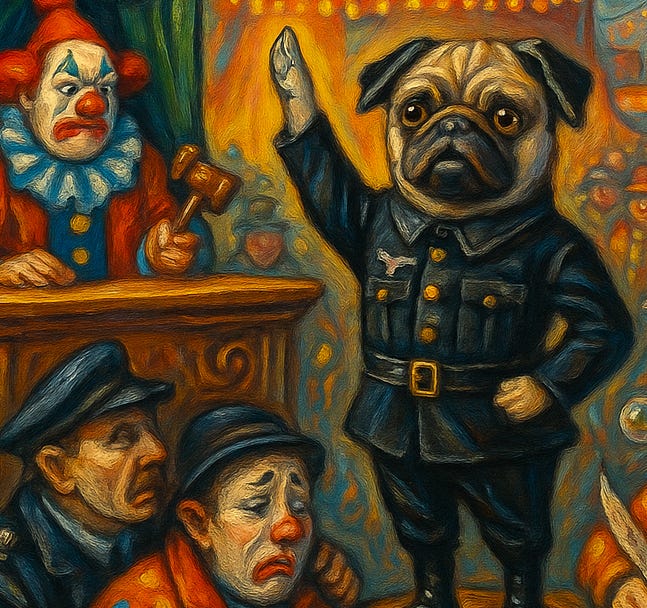

If you're insulted, you deserve to be.
Let us explore freedom in my podcast here:
https://soberchristiangentlemanpodcast.substack.com/p/s1-ep-5-sober-christian-gentleman